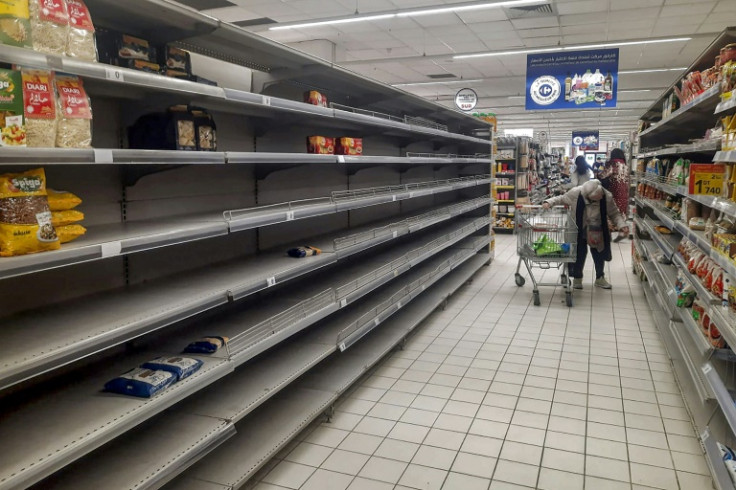A reported 82% of shoppers face out-of-stock products as post-pandemic and inflationary pressures persist
New data from Retail Insight reveals a mounting crisis as shoppers report an increase in out-of-stock products, fueled by factors like COVID-19 aftermath, geopolitical tensions and climate concerns.

Retailers are dealing with the ongoing problem of out-of-stock products, which has been compounded by a confluence of reasons, ranging from post-pandemic disruptions to inflationary pressures.
As shoppers face fewer vacant shelves, the retail industry is forced to discover inventive methods to sustain customer loyalty and assure a flawless shopping experience. New data by Retail Insight, the foremost provider of store operations execution software, has shed light on a mounting crisis that has come to light as shoppers report a rise in out-of-stock products.
This revelation is being driven by a number of factors, including the lingering effects of the COVID-19 pandemic, Russia's conflict with Ukraine and the spectre of climate change.
According to original Retail Insight data of over 1,000 UK shoppers, 82 per cent of shoppers have experienced out-of-stock products in physical stores in the last 12 months, up +11 percentage points year on year. Similarly, the digital sphere saw a 60 per cent incidence of the same issue, reflecting a 6 per cent upswing since 2022.
Availability of products has transmuted into a major concern for 71 per cent of consumers since the onset of the pandemic. With the cost of living crisis exacerbating matters, a reported 75 per cent find themselves struggling with more instances of out-of-stocks.
The report laid bare that 60 per cent of customers bemoan the scarcity of their favoured brands in physical stores during the past year. Meanwhile, 45 per cent lamented the absence of goods from their online grocery orders.
The upheaval doesn't stop there, as supermarkets bear the brunt of climate upheavals, political uncertainty and global economic fluctuations. The ripples of COVID-19 continue to reverberate through supply chains, causing disruptions.
The "salad crop shortfall", driven by unseasonably cold weather, wiped out fresh produce from shelves. Furthermore, surging energy prices and the menace of avian flu have created a domino effect, impacting poultry farms and giving rise to egg shortages; retailers have encountered a slew of supply chain issues.
While macroeconomic factors influencing product availability have received attention, UK shoppers polled blamed poor product availability on the rising cost of living. A reported 57 per cent pointed to rising food production costs and a further 56 per cent cited inflation as the most significant factor in dwindling stock levels.
Additionally, 43 per cent squarely lay the blame on rising logistical costs, while 40 per cent cite the complexities of Brexit.
Paul Boyle, the CEO of Retail Insight, remarked: "Regardless of the causes - of which there are many and, rather unfairly, a great number of which remain outside of a retailer's direct control."
He emphasised that inadequate product availability does more than dent the shopping experience; it can cost retailers sales and, more crucially, long-term customer loyalty.
Additionally, the data also revealed that over a quarter (27%) of consumers in the UK expressed wavering loyalty to supermarkets that repeatedly face out-of-stock incidents. Moreover, 21 per cent revealed their willingness to abandon their shopping mission and exit the store if confronted with empty shelves. With rival supermarkets beckoning, 27 per cent are poised to shift their allegiance.
Boyle underscored the stark reality of inventory management, revealing that the accuracy of available products on the shelf stands at a mere 50 to 60 per cent. He stressed that the consequences of unavailability, concealment, or damage can translate to an 8 per cent loss in revenue – a costly pitfall that retailers cannot afford to ignore.
Boyle contended that by harnessing 'live' data, retailers can fine-tune product availability, ensuring timely stocking that keeps customers satisfied and fosters their loyalty.
Retail Insight's AvailabilityInsight solution employs cognitive technology to instantly convert retailer data into actionable alerts that show where, when and why items are unavailable.
This empowerment equips grocers with better decision-making tools, ultimately curbing out-of-stock incidents and bolstering customer contentment – an approach poised to elevate both sales and loyalty in these turbulent times.
© Copyright IBTimes 2025. All rights reserved.






















